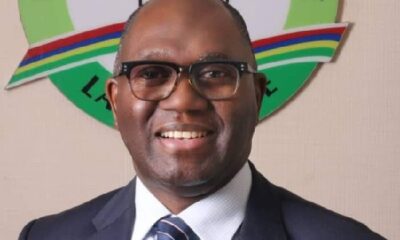- Experts Kick as IMF Calls for Tax Increase
Nigeria’s experts kicked against the International Monetary Fund (IMF) call for a tax increase as a means to fund the country’s high cost of servicing debt.
This was after the Debt Management Office (DMO) reported that Nigeria’s total debt rose by 5.11 percent or N1.3 trillion in the first half of 2019 to N25.701 trillion.
The fund stated that debt increase will weigh on government spending due to an increase in the cost of servicing it, therefore, the Federal Government was advised to raise the tax rate to accommodate the difference.
Experts, however, said Nigerians are already paying a lot despite current economic challenges, adding that it would be counterproductive to increase the financial responsibilities of the people at a period like this.
Mr. Muda Yusuf, the Director-General of the Lagos Chamber of Commerce and Industry, said creating an enabling business environment for investors would boost economic productivity, not an additional tax burden.
He said: “Monetary policy is tight enough in my view. Calling for more tightening will be overkill. Lending rates are high and government borrowing continues to have a crowding out effect on the private sector. We need to push back on portfolio flows as the pillar for stabilising the forex market. I subscribe to the demand for the rationalisation of the multiple forex windows and rates.”
Dr. Sam Nzekwe, a former President, Association of National Accountants of Nigeria, said most Nigerian businesses were not paying taxes except workers, whose taxes were being deducted from their salary monthly.
Nzekwe said, “They should be proactive, go to the people and widen the tax net, they should bring those who are not paying tax into the tax net.”
The Chief Executive Officer, Enterprise Stockbrokers, Mr Rotimi Fakayejo, said IMF advice wasn’t a progressive as it would hurt economic productivity and profitability of companies.
“I don’t think this will have an advantage because when you increase tax, you reduce consumption and when you reduce consumption, total productivity also come down. What we think we will get from an increment in tax will be lost from the total collectibles. At the end of the day, we are the loser for it,” he said.



 Forex2 weeks ago
Forex2 weeks ago




 Naira1 week ago
Naira1 week ago
 Naira4 weeks ago
Naira4 weeks ago
 Company News4 weeks ago
Company News4 weeks ago




 Naira1 week ago
Naira1 week ago
 Billionaire Watch1 week ago
Billionaire Watch1 week ago




 Naira3 weeks ago
Naira3 weeks ago




 Naira1 week ago
Naira1 week ago
















